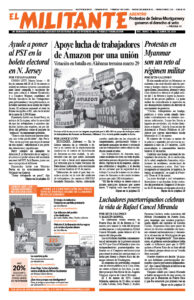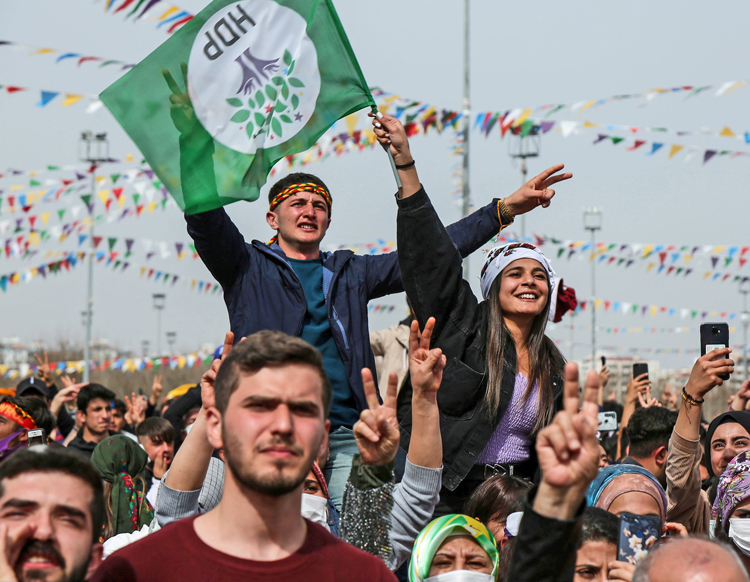The authoritarian government of Recep Tayyip Erdogan in Turkey moved to ban the Peoples’ Democratic Party (HDP), the nation’s third-largest and chief opposition party, March 18.
The HDP was formed in 2012 to represent the fight for national rights of the Kurdish people in Turkey, but has won broader support for its opposition to the Erdogan regime’s attacks on political and social rights.
There are over 30 million Kurds across Turkey, Iraq, Iran and Syria, roughly half in Turkey alone. The Kurdish people are the largest nationality worldwide without their own state.
The government filed a case with the Constitutional Court calling for dissolving the HDP, claiming it was attempting to “disrupt and eliminate” the unity of the Turkish state. It also seeks to ban 600 HDP members from engaging in politics for five years.
Outraged by this move, millions of Kurds who were celebrating the Newroz spring festival March 20 turned these events into acts of protest. Above, March 21 action in Diyarbakir. The government knows that “closing the HDP will not be the solution,” Abbas Mendi told Reuters at the Newroz celebration in Istanbul. “You can close a party but you can’t close people’s minds.”
In the 2018 election, the HDP won 11.7% of the vote, or nearly 6 million votes, electing dozens of members to parliament.
Over the past several years Turkish authorities have launched deadly attacks in the Kurdish region, and military assaults on Kurds in Syria and Iraq. They framed up leaders of the HDP, including former co-chairs Selahattin Demirtas and Figen Yuksekdag, who have been imprisoned since November 2016. From 1990 every effort by Kurds to form their own political party to vie in the elections has been disbanded by the Turkish regime.
“Not having been able to overpower HDP ideologically, politically or at the ballot box,” the party said in a statement, “they are now aiming to eliminate HDP from democratic politics by means of the judiciary. Their aggressiveness originates from their deep fear.”


